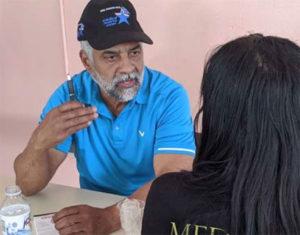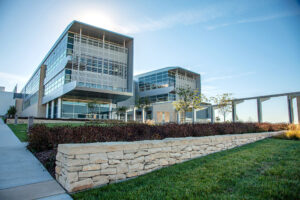
Puerto Rico conducts a medical assessment in response to an earthquake.
Retired physicians, nurses and other health care professionals have been asked to volunteer for duty in the wake of the coronavirus pandemic.
However, many of these retirees fall into the high-risk group for contracting COVID-19. They face a difficult choice: stay away and stay safer, or put aside the potential risk to help care for an increasingly sick population.
New York Gov. Andrew Cuomo and Colorado Gov. Jared Polis are among state leaders who have asked non-practicing M.D.s, R.N.s and other front-line personnel to pitch in, according to this cbsnews.com story. Medical professions can participate if their medical license is still active or can be reactivated.
Interested professionals simply fill out a form, like this one on the New York State Department of Health website, indicating their interest, specific qualifications and licensing information. Many recertifications are being fast-tracked to build capacity as quickly as possible.
Cuomo has “projected that his state will need 55,000 to 110,000 hospital beds to deal with the pandemic as it moves forward. He explained that the state only has 53,000 hospital beds, meaning the health care infrastructure may not be enough to handle the rapidly spreading coronavirus,” according to this Newsweek story. All of these new patients need doctors and nurses.
The medical recruits would add to the state’s Medical Reserve Corps (MRC), part of a national network of around 180,000 backup health workers in 860 U.S. communities who help with health care needs related to natural and man-made disasters, personnel shortages, vaccination clinics and other public health efforts.
New York City is reaching out to 9,300 M.D.s, R.N.s, L.P.N.s and other front-line care professionals, according to an email interview with Michael Lanza, a spokesperson for the city’s Department of Health and Mental Hygiene (DOHMH). About 3,400 volunteers are over age 60.
At a March 17 press conference, Mayor Bill DiBlasio issued a plea for additional MRC volunteers. “It is on a voluntary basis, but we’re going to ask all those who are part of our Medical Reserve Corps who can come forward to help, we need you now.”
Licensed health workers who aren’t in the Medical Reserve Corps, such as those in private practice or not connected to a larger institution, can be added to it, he explained. “We are going to need you, and we’re asking you to sign up for the corps.” That call for assistance was answered by more than 1,000 professionals in just one day, according to the New York Post.
Health care workforce shortages nationwide severely impact the ability to staff this emergency. “When there is a surge, they count on nurses to work extra overtime,” Susan Shannon, R.N., a retired emergency room nurse from Minneapolis, wrote on the KevinMD website. “When they are desperate, they put out a page to nurses. If you come in, you receive double pay. There was rarely a day that one of these pages didn’t go out.” Now there simply are not enough nurses to answer the call for extra shifts and a massive influx of sick patients, especially as nurses contract the disease themselves. So many retirees are being asked to step up, despite the potential risk.
Steve Hetzel, 67, a retired registered nurse from Floral Park, N.Y., is considering volunteering but would prefer to help with off-site testing, rather than work in a hospital right now. “Testing is not as risky and something I can easily handle,” said the former post-acute care (PACU) nurse. He hasn’t practiced in two-and-a-half years and says he isn’t comfortable working in an ICU with rusty skills. “But anyone can take a temperature or do a swab, and that would free up more qualified workers.”
Medical Reserve Corps volunteer opportunities are based on the skills and licensure needed for particular roles. They are never forced to do anything; they choose their role and are trained and educated on how to minimize the risks, according to DOHMH. They will be supplied with necessary personal protective equipment (PPE), according to the agency, despite numerous reports of shortages of protective masks and face shields. The challenge for the MRC is that many volunteers already have other jobs — and may not be able to step away if they’re employed in a critical field.
“They’re going to need people who have any degree of training because we have such a shortage right now in New York City of nurses that we’re going to need to bring in people,” said Adrienne Wald, Ed.D., a nurse and associate professor of nursing at Mercy College in Dobbs Ferry, N.Y. She anticipates that senior nursing students can help with tasks like taking temperatures and vital signs, freeing more experienced professionals for higher-level care.
Wald is not planning to volunteer. “I’m used to being on the front line, so it’s really hard not to be in it this time,” she said. “I have an 88-year-old mother in New York who’s alone. I have my husband. We’re all in the high-risk age group.” She finds comfort in seeing the next generation of nurses stepping up and “doing a great job.”
Story ideas
- Every state and many cities have a Medical Reserve Corps. Are retired professionals stepping up and are they working hands-on with COVID-19 patients or taking over less risky cases to free up regular staff?
- How are they balancing the real possibility of getting sick themselves with their calling to care for others?
- How else are hospitals in your city filling in the workforce gap?
- Are these facilities taking any steps to protect older hospital staff?







